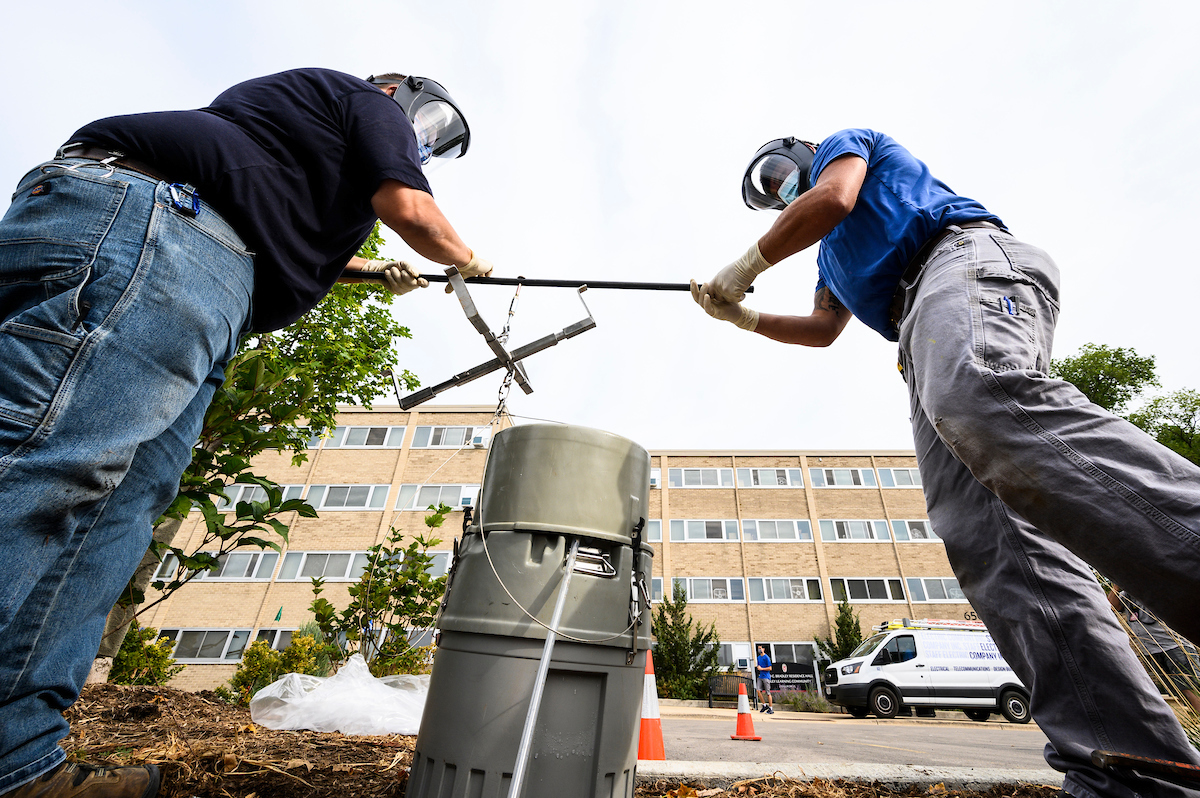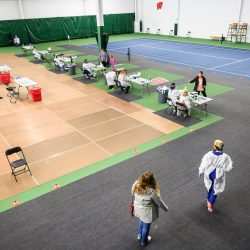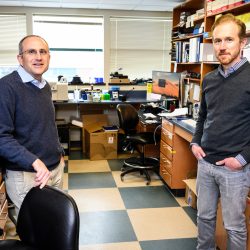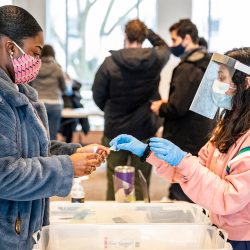
Researchers are studying wastewater from campus buildings to provide early detection of new COVID-19 outbreaks. Jeff Miller
COVID-19 testing might be coming to a sewer near you.
Testing wastewater for the virus behind COVID-19 could provide early detection of new outbreaks, giving health care workers critical time to respond. UW–Madison researchers are partnering with cities around the state to test 60 percent of Wisconsin’s wastewater. They’re also studying wastewater from campus buildings, including residence halls, to detect new infections early. While researchers doing this work are safe from the virus, they do face hazards of a sort on the job.
“Samples on campus can be from within minutes of production, so they are a bit messier,” says Martin Shafer PhD’88, a senior scientist at the Wisconsin State Laboratory of Hygiene. Yet, he adds, “we do it for the good of science and public health.”
This innovative testing is just one of the ways the UW has marshaled its resources and ingenuity to address the pandemic.
Engineers have tackled the virus as well. Lennon Rodgers and Karl Williamson of the Grainger Engineering Design Innovation Laboratory designed the Badger Seal, a DIY flexible frame to better fit disposable or cloth masks against the face. The seal can make these cheap masks much more effective at filtering out particles.
UW researchers have also been genomic sleuths. Thomas Friedrich ’97, PhD’03 and David O’Connor, who have studied COVID-19 for months, partnered with Nasia Safdar MS’02, PhD’09 at the UW School of Medicine and Public Health (SMPH) to track down a health care worker’s COVID-19 infection. Genetic sequencing revealed that the worker harbored a virus strain identical to their family member’s virus and distinct from the virus of patients they had cared for. The results should offer reassurance to frontline workers: their protective equipment really can keep them safe from infection.
In late August, UW Health and SMPH were selected as one of the first sites in the country for a late-stage clinical trial of a COVID-19 vaccine. William Hartman, an assistant professor of anesthesiology who has directed clinical trials of antibody-based medicines and convalescent plasma treatments, is leading the UW trial. It aims to recruit 30,000 participants nationwide.
Published in the Winter 2020 issue




Comments
No comments posted yet.